Kevin DeYoung's Blog, page 23
July 31, 2017
Christ Covenant Church Is Looking for a Young Families Pastor
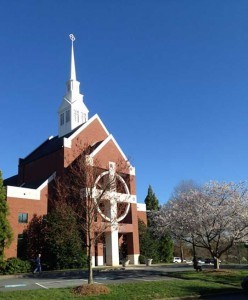 Christ Covenant Church is seeking a pastor to lead its Young Families community. The preferred applicant will be an ordained teaching elder in the PCA, with a minimum of three years of church ministry experience, and in a similar life stage or older as the community he leads.
Christ Covenant Church is seeking a pastor to lead its Young Families community. The preferred applicant will be an ordained teaching elder in the PCA, with a minimum of three years of church ministry experience, and in a similar life stage or older as the community he leads.
Additional information, including how to apply, can be found on our website.
Want to know more about Christ Covenant? Check out our history page.
July 30, 2017
Monday Morning Humor
An oldie but a goodie. My cello playing child asked me to post this. Keep practicing, son.
HT: Jacob
July 27, 2017
12 Pastoral Commitments (Or, How to Pray for Your Pastor)
 I love Paul’s description of pastoral ministry in 1 Thessalonians 2:1-12. I find in these verses 12 commitments I need to make as a pastor.
I love Paul’s description of pastoral ministry in 1 Thessalonians 2:1-12. I find in these verses 12 commitments I need to make as a pastor.
1. I will not shrink back from suffering for the gospel (v. 2). We will carry a cross, just as we call others to do the same.
2. I will preach boldly (v. 2). We will be clear in the face of fear.
3. I will not deceive (v. 3). No ulterior motives, no tricks, no gimmicks. Just plain old truth.
4. I will work to please God, not men (v. 4). The most important audience is up there, not out there.
5. I will not flatter (v. 5). Encourage, yes. Point out evidences of grace, I hope so. But no backslapping to get what we want.
6. I will not be greedy for selfish gain (v. 6). We are not in this for the money.
7. I will not seek my own glory (v. 6). It’s not about me.
8. I will be gentle like a mother (v. 7). Let’s try tenderness before toughness.
9. I will share my own self (v. 8). The pastor must freely and openly give two things to his people: he must give the gospel, and he must give himself.
10. I will work hard (v. 9). This is not an excuse to neglect one's family or personal discipline and rest, but we should not be afraid of toil and effort.
11. I will pursue personal holiness (v. 10). It's hard to take people where we have not gone ourselves.
12. I will exhort like a Father (v. 11-12). The preacher is not a hothead, but he's also not a softy. He's not trying to make everyone mad, but he's not trying to make everyone happy either.
Pastors, how are we doing? Let’s keep these biblical priorities in front of us at all times. And parishioners, we would be immeasurably blessed if you would pray that we stay true to these things. For if God can help us follow Paul as he followed Christ, our labors among you will not be in vain (v. 1).
12 Pastoral Commitments (Or, How To Pray for Your Pastor)
 I love Paul’s description of pastoral ministry in 1 Thessalonians 2:1-12. I find in these verses 12 commitments I need to make as a pastor.
I love Paul’s description of pastoral ministry in 1 Thessalonians 2:1-12. I find in these verses 12 commitments I need to make as a pastor.
1. I will not shrink back from suffering for the gospel (v. 2). We will carry a cross, just as we call others to do the same.
2. I will preach boldly (v. 2). We will be clear in the face of fear.
3. I will not deceive (v. 3). No ulterior motives, no tricks, no gimmicks. Just plain old truth.
4. I will work to please God, not men (v. 4). The most important audience is up there not out there.
5. I will not flatter (v. 5). Encourage, yes. Point out evidences of grace, I hope so. But no backslapping to get what we want.
6. I will not be greedy for selfish gain (v. 6). We are not in this for the money.
7. I will not seek my own glory (v. 6). It’s not about me.
8. I will be gentle like a mother (v. 7). Let’s try tenderness before toughness.
9. I will share my own self (v. 8). The pastor must freely and openly give two things to his people: he must give the gospel, and he must give himself.
10. I will work hard (v. 9). This is not an excuse to neglect one's family or personal discipline and rest, but we should not be afraid of toil and effort.
11. I will pursue personal holiness (v. 10). It's hard to take people where we have not gone.
12. I will exhort like a Father (v. 11-12). The preacher is not a hot head, but he's not a softy. He's not trying to make everyone mad, but he's not trying to make everyone happy either.
Pastors, how are we doing? Let’s keep these biblical priorities in front of us at all times. And parishoners, we would be immeasurably blessed if you would pray that we stay true to these things. For if God can help us follow Paul as he followed Christ, our labors among you will not be in vain (v. 1).
July 24, 2017
Remembering Haddon Robinson
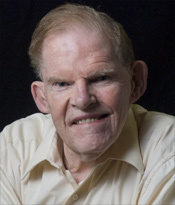 Over the weekend I heard the news that Haddon Robinson–seminary professor, seminary president, and one of the most influential preachers of the last 50 years– had passed away. The 86 year-old author and teacher died on July 22, 2017, leaving behind his wife, Bonnie, of 66 years. Dr. Robinson’s conversion story is worth reading and his lifetime of ministry well worth noting.
Over the weekend I heard the news that Haddon Robinson–seminary professor, seminary president, and one of the most influential preachers of the last 50 years– had passed away. The 86 year-old author and teacher died on July 22, 2017, leaving behind his wife, Bonnie, of 66 years. Dr. Robinson’s conversion story is worth reading and his lifetime of ministry well worth noting.
Let me add just a few personal remarks.
I didn’t know Haddon Robinson well. I took homiletics from him at Gordon-Conwell in the early 2000s. I never was and never will be a Haddon clone. I didn’t win any preaching awards at seminary. My sermons were just a few more drops in a deep well of bad messages Haddon has to listen to over the years. When I saw Haddon a couple times in the ensuing years, while returning to my alma mater to preach or lecture, I think he sort of remembered me, but not much. There was no reason he needed to.
But here’s what I remember.
The man practiced what he preached. Literally. His sermons in chapel were always stunning examples of construction, concision, and storytelling. I never completely embraced Haddon’s method, but there was no doubt he was a master at his craft. His lectures were as good as his sermons. During my college and seminary days I had some good lecturers and some bad lecturers. But no one lectured like Haddon. It was obvious he had labored (though effortlessly, it seemed) over every illustration, every opening, every transition. I never heard him give a boring talk. He always spoke without notes and always spoke amazingly well. He knew what made two hours feel like twenty minutes.
He was also incredibly disciplined, at least from everything I saw. My friends and I would joke about how often we saw Haddon working out in the gym and how we saw him every morning in the cafeteria reading the paper. He was there to catch up on the news, I suppose, and there to be friendly to students. But mostly I think he was continuing the disciplined practice and finding and filing sermon illustrations. We were required to find 70 sermon illustrations for his class (I think that was the number) and come up with a filing system that worked for us. I hated that requirement so much that I took Preaching II pass/fail so I wouldn’t have to do it. Would my sermons today be better if I had a system for finding and filing sermon illustrations? I don’t know. But his sermons were.
The poor man, by virtue of his profession, had to sit through thousands of awful sermons. I’ll never forget the comment he made after my first mini-sermon in his class. Haddon was refreshingly frank in his evaluations. He wasn’t cruel, but he wasn’t overly sympathetic to our nerves or our fragile egos. I appreciated that about him. Toward the end of his on-the-spot, in-front-of-the-class evaluation, he said, “Kevin, that illustration you gave, well, it was better than nothing.” The class started laughing, but he wasn’t poking fun, just being candid. “No, I mean it,” he continued. “You knew that you needed something there, and what you came up with was better than nothing.” Only slightly so, I imagine.
During my time at Gordon-Conwell, Big Idea preaching was definitely the order of the day. We used Haddon’s textbook and others like it. I was more enamored with the Puritans and Piper and Lloyd-Jones than with every jot and tittle of Haddon’s approach. But looking back, I learned more from him than I realized at the time. I learned the difference between the exegetical main point and the homiletical main point. I learned about explaining, illustrating, applying, and defending the text. I learned–how could I not?–to look for one big idea. Do I preach like a Haddon disciple? I’m sure not. But I still stop to ask myself all the time, “Okay, what is the one thing the author here is trying to communicate?” I often tell pastoral interns, “Your sermon needs to pass the 2:00 AM test. If Miss Betty calls you in the middle of the night and asks you what the sermon is about, you better be able to tell her in a brief phrase or sentence so you can both go back to sleep.” If the point of the sermon isn’t clear to us it won’t be clear to anyone else.
So let me add my voice to many others giving thanks for Haddon’s life and ministry. The man who did so much to champion one Big Idea can now focus on one Big Thing and one Big God for the rest of eternity. And that’s something infinitely better than nothing.
July 20, 2017
Why I Love the Evening Service (And You Can Too)
 My whole life I've gone to church Sunday morning and Sunday evening.
My whole life I've gone to church Sunday morning and Sunday evening.
My parents took us to church and Sunday school on Sunday morning, and they always took us back on Sunday evening. We even went when the Bears were in the Super Bowl. The crowd was much smaller than Sunday morning, but there were always people eager to be there.
Over the years, the evening service started to feel less like a "real" service as preaching became less prominent. We'd watch a video for a month or combine with another church for the summer or try small groups. I have nothing against videos (in their proper place), joint services, or small groups. But at the time they all seemed like efforts to keep up the tradition of the evening service without putting forth much effort.
In college I went to a Baptist church with strong preaching. My friends and I went Sunday morning and came back hours later to their well-attended evening service. While at seminary, I attended a wonderful OPC (now PCA) congregation. The attendance could be sparse on Sunday night, but I was always eager to go. I even met my wife there.
My first pastoral charge was at a large church in Iowa. As the associate pastor I would often preach on Sunday evening. We had around 900 people in the morning and about half that in the evening. I was glad to be there for two services.
When I came University Reformed Church in 2004 the long-standing tradition of evening services had just about disappeared. I don't think the interim pastor had much interest in them, and the attendance had dwindled to a few dozen. I told the search committee that I wanted to resurrect the evening service. Over the years, the service grew to a very strong core of committed folks, about one-fourth of our Sunday morning attendance.
Now as the pastor at Christ Covenant, I’m eager to pour into Sunday evening and, by God’s grace, see that service flourish.
Every church I've ever been a part of has had a Sunday evening service. I've always gone. It's what I grew up with. It's part of my rhythm as a Christian, and I am immensely grateful for it. It can be a chore to get the whole family back for the evening, and at times with young children my wife hasn’t been able to make it. But we hope to instill in our family the same habits that have served us so well.
Saying Enough, But Not Too Much
Before I say anything else, let me make clear that I don't think Scripture absolutely requires an evening service, nor do I think a church member is necessarily disobedient if they don't attend their church's evening service. I know some good Reformed folks will argue that the evening service is a matter of biblical obedience. I can't make the case definitively.
Some churches may be in cultures that make a second service on Sunday evening prohibitively difficult. Some congregations may be really committed to home groups on Sunday nights. Other congregations may have repeat services that stretch into the afternoon, or they may do the same Sunday morning service on Sunday evening. Many churches have never had an evening service. It's just not in their DNA. I sympathize with the difficulty they may have in even considering an evening service. Other churches may find it difficult to pull together a second quality service because their resources and personnel are stretched thin. Many smaller churches or church plants may be in this situation.
And then there are the individual church members who may have a hard time getting back to the evening service because they live an hour away. Or someone, out of necessity, has to work on Sunday evening or at 4am on Monday morning. Or the family has very young children that need to be in bed before the evening service will be over.
I know there are many reasons why having, starting, keeping, or going to the evening service may be difficult. I do not want to require more than Scripture requires.
What Is Still Worth Saying
And yet, I think you’d be hard pressed to argue that the waning of the evening service has been a mark of renewed strength and vigor in the Western Church.
Here are a few reasons why I'm thankful for the evening service and why I hope you'll consider keeping yours, going to yours, finding a neighboring church that has one, or even starting one at your church.
1. Starting and ending the Lord's Day with corporate worship fits the pattern of morning and evening sacrifices. I don't think this is a slam dunk argument for evening worship, but it corresponds to a good pattern that the day would begin and end with worship.
2. If the sermon and the sacraments are truly means of grace, let's give people the opportunity to experience this grace and take advantage of the opportunities on the day set aside for worship. Martyn Lloyd-Jones supported the practice of evening worship because he believed there should be a hunger for the preaching of the word-a hunger that desires a second time to feast on the Bible.
3. Having an evening service keeps the Lord's Day the Lord's Day. Without the evening service I find it too easy to treat Sunday worship like an hour to get done at the beginning of the day. With evening worship, Sunday feels like a day set apart. Without it, Sunday morning worship feels like one thing to do in the midst of a busy weekend. The temptation to squeeze worship into the margins of life is even more pronounced when we can finish our worship "requirement" by 8pm on Saturday evening.
4. The evening service is a lot of work, but it is good work. It can allow more teaching opportunities for others in the church. In most churches, there will be men, other than the senior pastor, gifted to teach and preach. Having an evening service gives those men, and those in ministerial training, more opportunities to exercise and hone their gifts.
5. Most pastors are busy (even crazy busy!). We aren’t usually looking for one more thing to do. But of all the things we could do, spending more time in the word is one of the best. A second service forces the pastor to spend more time in the Bible, which is a good thing too.
6. The evening service is a great time for extra fellowship and extra prayer. We can do certain things with meals, small group prayer, and lingering conversations that are more difficult on a cramped Sunday morning. Sunday evening provides opportunities for testimonies, for prayer requests, for organized prayer for missionaries or unreached people groups.
7. I’ve found the evening service to be a great training ground and proving ground for future officers and leaders in the church. As a pastor, I take note of who is committed to morning and evening worship and who seems to be growing in hunger for the word of God.
Just to reiterate: I don’t think we can mandate the evening service as an explicit command of Scripture. That doesn’t mean, however, that the evening service should be a take it or leave it proposition. The tradition of the church should not be quickly overturned, especially by those who want to lay claim to the Reformed-Puritan mantle. There may be good reasons not to attend your evening service or not to have one, but these should be considered prayerfully, not as an easy concession to lifestyle habits and cultural pressure. Why not give the evening service a try for three months and see if your walk with the Lord is better or worse because of it.
July 17, 2017
For the Sake of Your Conscience
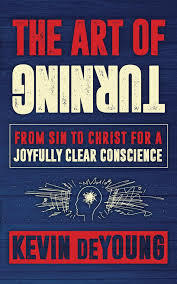 When Marin Luther rode into the town of Worms in 1521, he was not a confident man.
When Marin Luther rode into the town of Worms in 1521, he was not a confident man.
Luther had long protested against the corruption of the Roman Catholic Church – most famously in 1517 with the posting of his Ninety-five Theses on the door of the Castle Church in Wittenberg. After years of ensuing controversy, Pope Leo X finally excommunicated the German reformer in January 1521. In April of that year, Luther was summoned to appear before the Imperial Diet (Assembly) at Worms to defend his controversial beliefs before the Holy Roman Emperor Charles V. We may think of Luther as big and brash and full of swagger, but he came into Worms so intimidated that on the first day of his defense his statements could barely be understood. The Catholic authorities were threatening to banish him from Charles’ empire – a vast territory centered in Germany and spanning central Europe. Luther’s livelihood as a professor, and his very life, were at stake.
Luther knew what the authorities wanted him to do: recant his words criticizing the Catholic Church for its teaching and practices. However fearful he may have been at the outset, by the end of the interrogation Luther had gathered his strength. “My conscience is captive to the Word of God,” Luther declared. “Thus I cannot and will not repent, for going against my conscience is neither safe nor salutary. I can do no other. Here I stand. God help me. Amen.”
On May 26, 1521, the Emperor rendered his decision. Luther was to be placed under a “ban and double ban.” This Edict of Worms implored the men and women of the empire:
…not to take the aforementioned Martin Luther into your houses, not to receive him at court, to give him neither food nor drink, not to hide him, to afford him no help, following, support, or encouragement, either clandestinely or publicly, through words or work. Where you can get him, seize him and empower him, you should capture him and send him to us under tight security.
Luther was now a man on the run. The powers that be were adamant that Luther and his writings – and anyone sympathetic to his ideas – must be silenced. And yet, Luther was willing to endure all this – expulsion, danger, maybe even death – for the sake of his conscience. In a very real sense, you could say that the history of the Reformation, the history of Europe, and the history of the entire world was, in God’s providence, altered because one man refused to violate his conscience.
Praise God Luther took his conscience seriously.
I wonder if you and I are quite so careful with ours.
*****
Many of you will know the story of Pinocchio. I remember the story as I learned it from the Disney cartoon version. The woodcarver Gepetto wants his puppet Pinocchio to be a real boy. Once this wish is granted, Jiminy Cricket is assigned to be Pinocchio’s conscience.
As a child, I was terrified by the movie, because, of course, Pinocchio doesn’t stay a little boy for long. He falls in with the wrong crowd, and his lack of truth-telling gets him into trouble. His nose grows long as a sign that lies eventually become as plain as the nose on your face. As he continues to lie and ignore Jiminy Cricket, Pinocchio starts turning into a donkey. He blurts our a “hee-haw” in the middle of sentences. He starts braying. Donkey ears pop out of his head. A donkey tail sprouts from his backside. The boy is becoming an animal.
There is more going on in this story than we realize as children. The crux of the tale is that as Pinocchio ignores his conscience, he becomes more like a beast. He becomes something less than human. A conscience is not only indispensable to living a life pleasing to God and enjoying peace with God; it is essential for living as the human beings God made us to be.
The post above is an excerpt from a new book I’ve written entitled The Art of Turning: From to Christ for a Joyfully Clear Conscience (10Publishing). This brief book (40 pages) looks at what the conscience is, how it misfires, and how to have a clear conscience in Christ.
July 16, 2017
Monday Morning Humor
July 13, 2017
A New Beginning
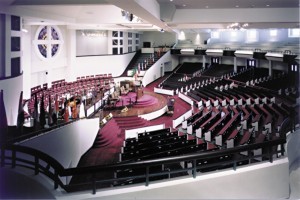 You may have noticed that things have been a little quiet on the social media front. Not many blogs, tweets, and posts over the past month.
You may have noticed that things have been a little quiet on the social media front. Not many blogs, tweets, and posts over the past month.
That’s because I’ve had, um, a few things going on: tearfully leaving friends and family in Michigan, moving to North Carolina, flying to the UK, getting a new house set up, starting a new job (actually, with the RTS position, two new jobs), setting up my study, learning how to navigate a new town (with more traffic!), learning not to run in the middle of the afternoon, meeting new people, capturing small woodland creatures, doing tick checks, welcoming guests to our home, and making a good faith effort to burn through all our Chick-fil-A gift cards as soon as possible.
But we are here in Charlotte and things are going well. Our new church family has been exceedingly kind, generous, and welcoming. The staff has been great to work with. The kids are having fun exploring. And we are off and running.
This Sunday, July 16, will be my first Sunday as the pastor at Christ Covenant. If you are in the Charlotte area looking for a place to worship, come join us! I’ll be starting a brief series called “A Church to Be Thankful For” based on the prayers of Paul in 1 and 2 Thessalonians. The morning service is at 10:45. This Sunday evening (6:00) will be my official installation service conducted by the Presbytery of Central Carolina. Ligon Duncan will be preaching.
In subsequent weeks I will pick up where the previous pastor left off and start preaching through Exodus (beginning at chapter 15) in the evenings. After five weeks in 1 and 2 Thessalonians in the mornings, I hope to start a long series in the Gospel of John. Except for one or two weeks, I’ll be preaching on Sunday mornings through Christmas, and on Sunday evenings almost as much.
I’m also excited to announce that for the past several months Christ Covenant’s website has been getting (behind the scenes) a major overhaul. In addition to getting some cosmetic updates, the new site will be great for accessing resources and learning more about the church. More on the website soon.
Lots going on and lots to still figure out. I’m grateful for the support and the prayers of so many. Thank you.
And if you are a part of Christ Covenant, or just looking for a new church in and around Matthews, see you Sunday.
July 11, 2017
Theological Primer: Limited Atonement
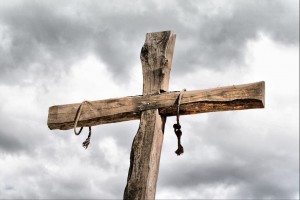 From time to time I make new entries into this continuing series called “Theological Primer.” The idea is to present big theological concepts in around 500 words. Today we look at limited atonement.
From time to time I make new entries into this continuing series called “Theological Primer.” The idea is to present big theological concepts in around 500 words. Today we look at limited atonement.
*******
The doctrine of limited atonement–the L in TULIP–teaches that Christ effectively redeems from every people “only those who were chosen from eternity to salvation” (Canons of Dort, II.8). As Ursinus explains in his commentary on the Heidelberg Catechism, Christ's death was for everyone "as it respects the sufficiency of satisfaction which he made, but not as it respects the application thereof.” In other words, the death of Christ was sufficient to atone for the sins of the whole world, but it was God's will that it should effectively redeem those and only those who were chosen from eternity and given to Christ by the Father.
Particular redemption is often considered a more favorable term, because the point of the doctrine is not to limit the mercy of God, but to make clear that Jesus did not die in the place of every sinner on the earth, but for his particular people. The good shepherd lays his life down, not for the goats, but for the sheep (John 10:11). This is why John 6 says Jesus came to save those the Father had given to him, and why Matthew 1:21 says he died for his people, and John 15:13 says for his friends, and Acts 20:28 says for the church, and Ephesians 5:25 says for his bride, and Ephesians 1:4 says for those chosen in Christ Jesus.
The doctrine of particular redemption is worth defining and defending because it gets to the heart of the gospel. Should we say "Christ died so that sinners might come to him"? Or, "Christ died for sinners"? Did Christ's work on the cross make it possible for sinners to come to God? Or did Christ's work on the cross actually reconcile sinners to God? In other words, does the death of Jesus Christ make us save-able or does it make us saved?
If the atonement is not particularly and only for the sheep, then either we have universalism-Christ died in everyone's place and therefore everyone is saved-or we have something less than full substitution. "We are often told that we limit the atonement of Christ," Spurgeon observed, "because we say that Christ has not made a satisfaction for all men, or all men would be saved." But, Spurgeon argued, it is the view of the atonement which says no one in particular was saved at the cross that actually limits Christ's death. "We say Christ so died that he infallibly secured the salvation of a multitude that no man can number, who through Christ's death not only may be saved, but are saved, must be saved and cannot by any possibility run the hazard of being anything but saved."
Christ does not come to us merely saying, "I've done my part. I laid down my life for everyone because I have saving love for everyone in the whole world. Now, if you would only believe and come to me I can save you." Instead he says to us, I was pierced for your transgressions. I was crushed for your iniquities (Isa. 53:5). I have purchased with my blood men for God from every tribe and language and people and nation (Rev. 5:9). I myself bore your sins in my body on the tree, so that you might infallibly die to sins and assuredly live for righteousness. For my wounds did not merely make healing available. They healed you (1 Peter 2:24).
"Amazing love!" a great Arminian once wrote. "How can it be that you, my God, should die for me?!" Praise be to our Good Shepherd who didn't just make our salvation possible, but sustained the anger of God in body and soul, shouldered the curse, and laid down his life for the sheep.



